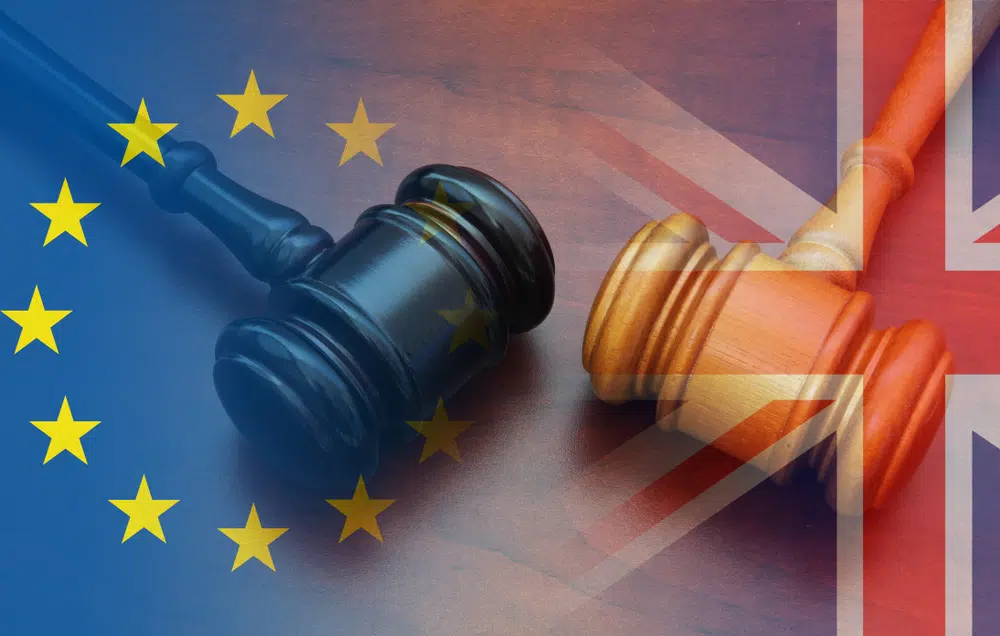 Customers’ rights need to be protected if your business sells goods or services over the telephone, by mail order, or online.
Customers’ rights need to be protected if your business sells goods or services over the telephone, by mail order, or online.
You must comply with Consumer Contracts Regulations when selling at a distance to individuals (rather than businesses).
You must also comply with the E-Commerce Regulations if you sell electronically – for example, through email or your website – no matter who your customers are.
The Consumer Rights Act applies to all businesses selling goods or services online, including digital content.
Distance Selling Regulations
The European Union’s Distance Selling Regulations are a set of laws designed to protect consumers who purchase goods or services online. The regulations apply to all businesses that sell goods or services to consumers in the EU, regardless of whether the transaction takes place online, by phone, or in person.
Under the regulations, businesses must provide certain information to consumers before a contract is formed, including the total price of the goods or services and the business’s contact information.
In addition, businesses must give consumers a 14-day cooling-off period during which they can cancel their purchase without incurring any penalties. Finally, the regulations stipulate that businesses must deliver goods to consumers within 30 days of the contract being formed.
By protecting consumers and ensuring that they are fully informed about their rights, the Distance Selling Regulations help to create a level playing field for businesses operating in the EU.
The Consumer Contracts Regulations 2013
Sales of goods or services to consumers without face-to-face contact are subject to the Consumer Contracts (Information, Cancellation and Additional Charges) Regulations. Among these methods are mail order, online, digital television, telephone, fax, or text messaging.
Distance Selling Regulations were a set of consumer protection rules that governed remote sales transactions, primarily online or over the phone, prior to being replaced by the Consumer Contracts Regulations in 2014. The regulations were designed to safeguard consumers’ interests and provide them with essential rights when purchasing goods or services from a distance.
Key provisions under the Distance Selling Regulations included the right to clear information about the product or service before purchase, a cooling-off period during which consumers could cancel their order without penalty, and protections against unauthorized payments.
These regulations played a crucial role in enhancing consumer confidence in e-commerce and ensuring fair and transparent business practices between sellers and buyers in the digital marketplace. Although replaced, their legacy still influences consumer protection policies today.
In accordance with the Regulations, you must:
- Provide specified information to customers before they make a purchase
- Confirm previous information and certain other details in writing (e.g., by email)
- Customers usually have the right to cancel their orders
- Unless otherwise agreed, you should fulfil your contractual obligations within 30 days
- Customers usually receive a full refund if they change their minds within 14 days of receiving their goods
Before the sale is made
Prior to or before signing the contract, you must provide the following information:
- Your business name and, if you require advance payment, your postal address
- A description of the goods or services, and if you will be supplying them on a continuing basis, the minimum term
- The price and how long the price and any special offer will remain valid
- Costs associated with delivery
- What payment methods are available
- How the service will be delivered (or performed)
- Cancellation rights information
- If the goods or services are unavailable, whether you will provide a substitute (and, if so, whether you will cover the cost of returning unwanted substitutes).
- Additional information about the functionality and compatibility of the digital content if the sale is digital
The following items do not require this information:
- A specific date or period for the provision of accommodation, transport, catering or leisure services
- A regular roundsperson (such as a milkman) delivers food and drink on a regular basis
- Package travel or timeshare sales (governed by separate regulations)
- Separate regulations apply to premium rate telephone services
Durable confirmation
It is also necessary to provide the following information in writing (a ‘durable’ confirmation):
- Information previously provided (see above)
- How the customer can exercise their cancellation rights, including whether they have to return unwanted goods if they cancel, and who is responsible for returning those goods
- Guarantees or after-sales service you provide
- In case of a complaint, please provide the customer with your geographical address
- Cancellation conditions for contracts lasting more than one year (or indefinitely)
It is important to provide confirmation information as soon as possible – at the latest, when the goods are delivered, or the service is performed. In the original mail order advertisement or catalogue, information can be provided by letter, fax, or email.
Cancellation rights
In the event of a cancellation, the customer has 14 calendar days from the date the goods are received or the date the durable confirmation has been received (see above), whichever is later. If the customer does not receive written (‘durable’) confirmation of the required information, and written confirmation of their right to cancel, this ‘cooling off’ period is extended to 12 months and 14 days.
For distance and door-to-door sales, you should provide a model cancellation form.
There are some exceptions to these cancellation rights, including the following:
- A specific date or time for the provision of accommodation, transportation, catering, or leisure services
- Regular roundspersons (such as milkmen) deliver food and drink to homes on a regular basis
- Sales of package travel or timeshares
- Telephone services at a premium rate
- Customer-specified goods (but not standard upgrades or variations)
- Perishable goods
- Goods that can’t be returned
- Recordings and software that have been unsealed
- Newspapers and magazines
- Betting and similar services
- Financial market-dependent goods and services
- The consumer must be explicitly informed about and agree to digital downloads once the download process has begun
Services are subject to similar rules.
Customers who return your goods are not required to do so by the Regulations, but they must make them available for collection to you. Refunds must be made to the customer as soon as possible, but no later than 14 calendar days after cancellation.
You must return your goods if the customer cancels your contract. They must pay your collection costs if they do not return them in that case.
Exemptions to the Regulations
There are a few exceptions. There are some exceptions to the Regulations:
- When you make one-off distance sales in response to a customer request (not when you regularly make such sales)
- The Financial Services Distance Marketing Regulations cover the sale of financial services
- Sales of land or buildings, including long-term leases
- Sales by vending machines or automated commercial premises, as well as public pay phones
- Auction sales (including online auctions)
The E-Commerce Regulations 2002
The E-Commerce Regulations apply to any electronic sale, such as one made through an email, a website or a text message. Both businesses and consumers are subject to the regulations. In addition to the Consumer Contracts Regulations, the E-Commerce Regulations apply to distance sales to consumers using electronic means.
You must provide the following information in your advertisements and sales under the Regulations:
- The name of your business, the address, and your contact information
- Your membership in trade organisations or professional bodies
- Information about any authorisation scheme (e.g., for financial services)
- Your VAT number
- Taxes and delivery costs are included in the prices
You must clearly identify any promotional offers, competitions, games, or conditions in any commercial communications (such as emails).
It is also necessary to provide additional information if you have automated systems that allow orders to be placed electronically (e.g., through your website). This includes details on how contracts are made and how they can be corrected in case of errors. Order confirmation must also be provided promptly.
The Consumer Rights Act 2015
The Consumer Rights Act 2015 protects consumers when they purchase goods and services at home (for example, through mail-order catalogues, direct sales, and online) as well as digital content. It is required that all goods are of satisfactory quality, fit for their intended purpose, and described accurately. A full refund must be given if faulty goods are found within 30 days of purchase. It is also possible for consumers to receive a full refund if faulty goods cannot be repaired or replaced within six months of purchase.
Refunds and replacements are not available to consumers who change their minds.
If consumers download faulty digital content (e.g., music, games, eBooks, software), you can offer repair or replacement. Consumers will be entitled to claim some or all of their money back if the fault cannot be fixed or cannot be fixed within a reasonable amount of time.
For digital content they have already purchased, consumers have 14 days to change their minds and claim a full refund, unless they have already begun downloading it.
When selling at a distance, seek legal advice if you are unsure about your legal obligations.
Reference : Online and distance selling
Conclusion
In conclusion, the Distance Selling Regulations served as a vital safeguard for consumers engaged in remote transactions, ensuring their rights and interests were protected in the rapidly evolving world of e-commerce. By establishing clear guidelines for online sellers and fostering transparency, these regulations bolstered consumer confidence and contributed to the growth of digital marketplaces.
Though later replaced by the Consumer Contracts Regulations, their impact remains significant, shaping modern consumer protection policies. As technology continues to advance, it is essential to build upon the foundations laid by these regulations and adapt them to the ever-changing landscape of distance selling, ensuring that consumers can shop with confidence and security in the digital age.
Lee Jones is a seasoned Business Finance Specialist with over two decades of invaluable experience in the financial sector. With a keen eye for market trends and a passion for helping businesses thrive, Lee has become a trusted advisor to countless organizations seeking to navigate the complexities of finance.


